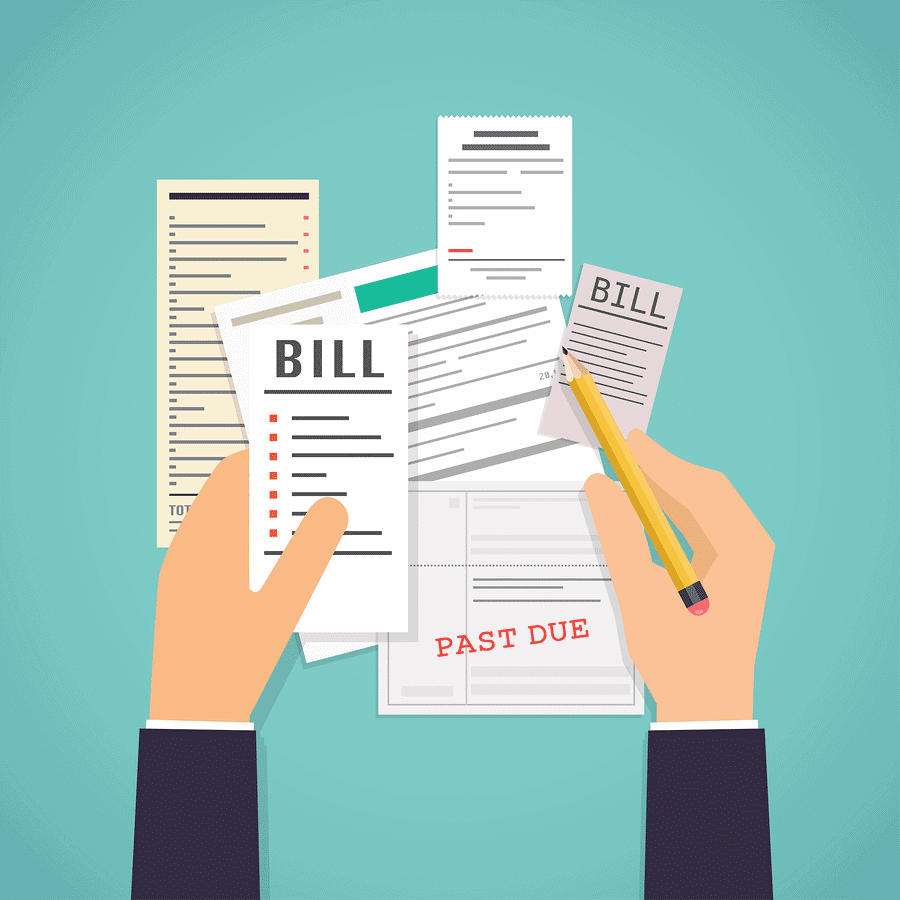If you are like most people, you’ve had a bill or two go unpaid. Maybe you suffered a job loss and couldn’t make your monthly credit card payments. Perhaps a utility bill went unnoticed when you had a lot going on or it got lost in the mail when you moved.
Regardless of why the debt went unpaid, it is important to deal with the bill if it has been sent to collections. While nobody wants to negotiate with collection agencies, dealing with the problem head-on is the best policy if you don’t want your credit score to plummet or to ensure you don’t end up in court. Follow these tips if you have an unpaid balance go into collections:
How Debts End Up in Collections
A past-due debt does not end up with a collections agency overnight. It begins when a debt goes unpaid. The debt, whether it is a car payment or a credit card payment, will be reported as delinquent with the creditor usually 30 days after the due date. The creditor will then make a serious of attempts to collect the past due amount. You will receive bills in the mail and phone calls. Some companies, such as credit card companies, have been known to call customers daily to collect past due balances.
After several months of no response, usually 180 days or longer, the creditor will give up on trying. The original creditor may then sell the debt to a collections agency. Creditors sell debts to professional collections agencies to try and recoup the losses. While agencies usually only recoup pennies on the dollar, they occasionally utilize aggressive tactics to collect payment.
After the payment is sold, you will receive a notice from the new owner within 30 days. The agency may offer you a payment plan or a settlement deal. It is now your responsibility to negotiate with the collections agency, not the original creditor. You have every right to ask the collections agency to validate the debt if you are suspicious.
How To Deal With a Collections Agency
It is important to be deliberate when dealing with a collections agency. They tend to use aggressive tactics, so you need to know your rights. Follow these tips when dealing with a collections agency:
- Do your research: As previously mentioned, you have rights as a consumer. You can request debt validation and verification letters from the collections agency. Ask for the letter when the collector first contacts you. Check the letter for details including the amount, original creditor and the age of the debt. If you have any questions or there are any discrepancies in the information when compared with your own records, request a debt verification letter.
- Know you have rights: As a consumer, you have rights. Familiarize yourself with the Fair Debt Collection Practices Act. There are certain things debt collectors can and cannot do when it comes to collecting unpaid balances. For example, they cannot threaten you, use foul language, or contact you in the middle of the night.
- Make a plan: When it comes to dealing with a collection agency, you have a few options. First, you can do nothing and ignore the debt. However, this is not usually the best option. The debt will continue to be sold and collections agencies will continue to contact you, often for many years. Second, you can pay off the debt. You can pay off the debt in full, request a settlement amount or set up a payment plan. Never give the collector permission to access your bank account if you decide to pay the debt. Mail in payments with a check or another traceable payment method. Also, get all payment agreements in writing. Lastly, you can choose to dispute the debt if it is not yours or if it has been paid. You dispute the debt directly with the three major credit agencies: TransUnion, Experian and Equifax. If the credit agencies determine that the debt is valid, they must mail you documents validating the debt. If the debt is not valid, the agency must stop contacting you.
How Collections Affect Credit Ratings
If you are like many people, you are worried about collections and credit scores. Generally, if a collections agency reports a debt to your credit report, it will remain there for seven years. Unfortunately, a collections account can decrease your credit score dramatically. It is important to note that your credit rating will not necessarily improve if you pay the debt.
Some more recent scoring models, such as FICO 9, will not count collections accounts against you once it is paid. Other models, such as FICO 8, will consider these accounts, even after it has been paid. Therefore, you will want to carefully weigh the pros and cons of paying a debt. You can sometimes, however, negotiate with a collections agency to delete the line of your credit if you agree to pay the debt in full.
Contact Coast Tradelines Today
If you have a collection account on your credit report, contact Coast Tradelines today. We offer a variety of services, including collections recovery, that can improve your credit score quickly and easily.


